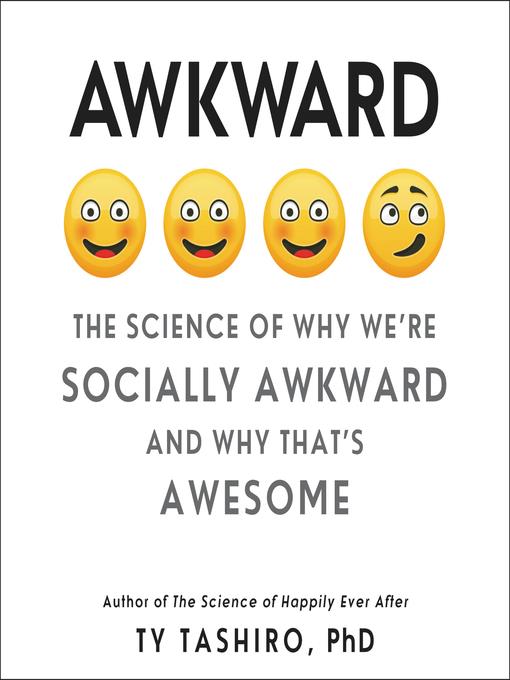
Awkward
The Science of Why We're Socially Awkward and Why That's Awesome
کتاب های مرتبط
- اطلاعات
- نقد و بررسی
- دیدگاه کاربران
نقد و بررسی

This charming examination of people who are somehow "off" in their behavior and relationships offers a reassuring perspective and many useful prescriptions. George Newbern's low-key narration is a big part of the audiobook's engaging appeal. His vocal humility and conversational phrasing create a comfortable space for learning, especially for people with shame or doubts about their social effectiveness. The author cautions that awkward people are distinct from those on the autism spectrum but are nevertheless burdened with functional liabilities such as physical clumsiness, poor cultural integration, shaky verbal skills, and social connections that are either clueless or fraught with anxiety. The author's friendly writing and the inviting narration will encourage them to adjust their skills to achieve more poise and confidence. T.W. � AudioFile 2017, Portland, Maine

September 15, 2016
Professor and relationship expert Tashiro (The Science of Happily Ever After) draws on decades of research into human intelligence, neuroscience, personality, and sociology to offer not so much self-help as insight into how gawky awkwardness can be turned to advantage. With a 75,000-copy first printing.
Copyright 2016 Library Journal, LLC Used with permission.

May 1, 2017
Tashiro (The Science of Happily Ever After) intends to describe what it means to be awkward, how modern society increases the opportunity for awkward moments, and how awkwardness can be an indication of greatness in other areas. Tashiro's prose meets this intention as he meticulously spells out what it's like to be awkward and the inherent paradox of it. With intriguing premises throughout, this work makes an unexpected point about the connection between likability and popularity and poses fascinating questions such as: "How do you fit in without losing yourself?" Readers who enjoyed Susan Cain's Quiet will find similar enjoyment here, whether reading to understand their own awkwardness or awkwardness in others. Tashiro's book is not self-help in nature, but it can make readers feel more comfortable and in control. VERDICT Mixing personal anecdotes with summaries of psychological studies, Tashiro effectively delivers an informative and engaging pop psychology piece on what it's like to be socially challenged. [See Prepub Alert, 8/22/16.]--Abby Hargreaves, Alexandria P.L., VA
Copyright 2017 Library Journal, LLC Used with permission.

March 15, 2017
An academic and psychologist examines the -quirks and unique talents of awkward individuals- and why it's not so bad to be awkward.Combining research and anecdote, Tashiro (The Science of Happily Ever After: What Really Matters in the Quest for Enduring Love, 2014) suggests that a certain amount of awkwardness is perfectly normal, that a little more can provide a series of learning experiences, and that any diagnosis short of autism might be handled in-house or with the help of a good therapist. As he writes, the author was socially awkward and is still recognized as such by some of his friends, though he proceeds to show how he met what in his case were mild challenges: -I am awkward by nature but socially proficient by nurture.- Such nurture comes in the form of training and advice, learning the consequences of some behavior, and becoming more adept at navigating social interaction. -Three important cues,- he writes, -tend to give awkward individuals trouble: nonverbal behaviors, facial expressions, and decoding language used during social conversations.- Awkward people tend to have a tighter focus and more obsessive routines; they are better at following rules than deciphering clues. They may not look others in the eye, and they tend to lecture rather than converse (when they are not alone, where they feel more comfortable). Sometimes awkwardness correlates with giftedness and thus standing apart. The awkward must learn what seems to come more naturally to others, to recognize the importance of social belonging, and to extend their comfort zones to include others. The cultural shift to the internet, in areas ranging from business communication to dating, can complicate the challenge, making cues more difficult to decipher without facial expression and tone of voice. Yet the author assures that awkwardness can be a gift and that one can be grateful for it--because he is. Tashiro offers little revelatory information, but it helps to know that you are not alone.
COPYRIGHT(2017) Kirkus Reviews, ALL RIGHTS RESERVED.

























دیدگاه کاربران